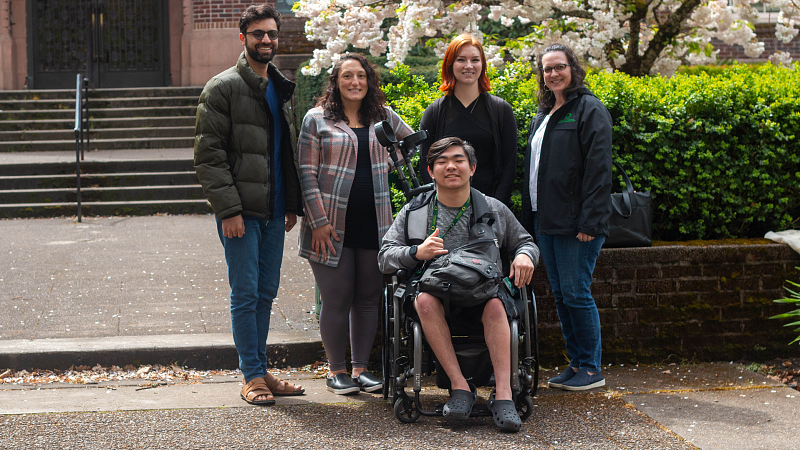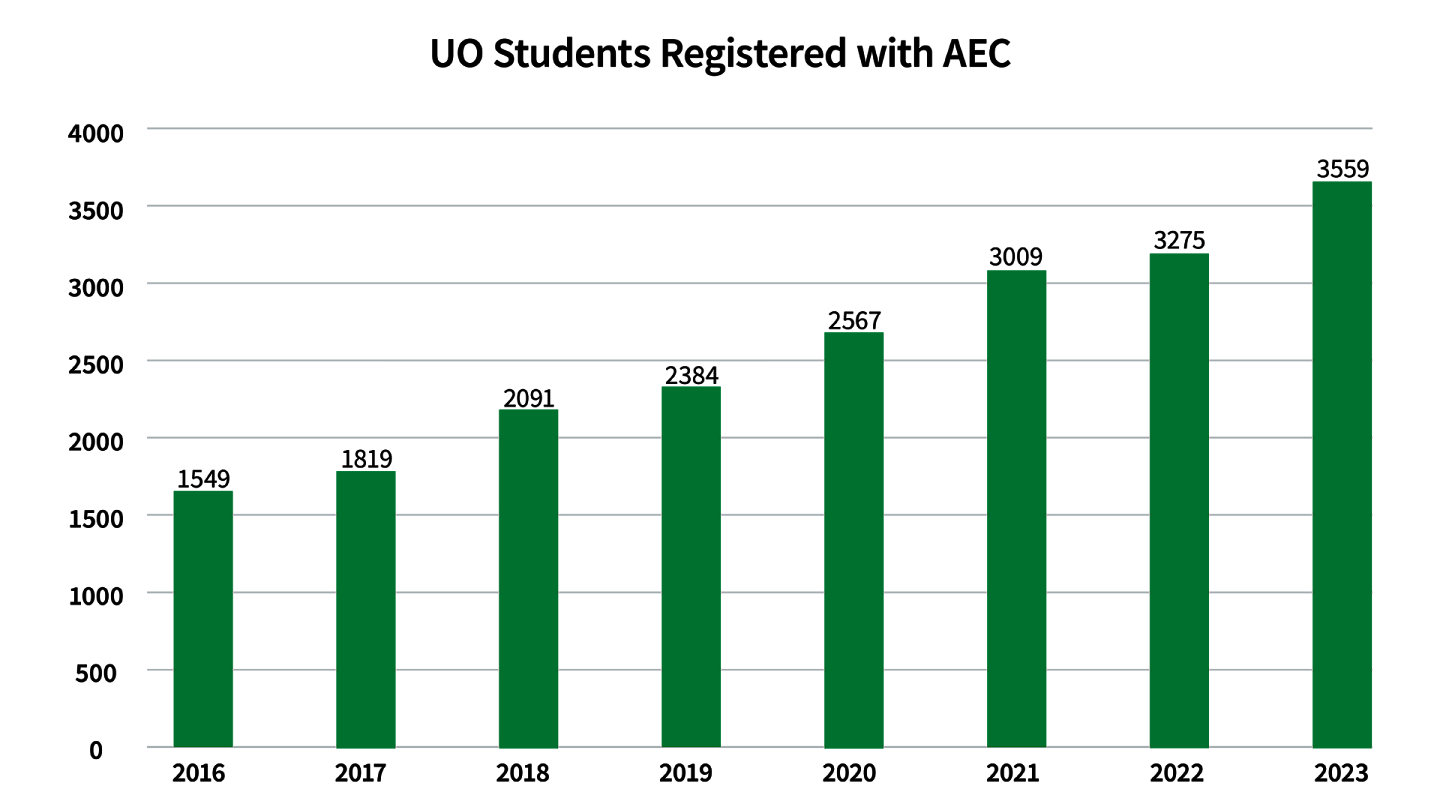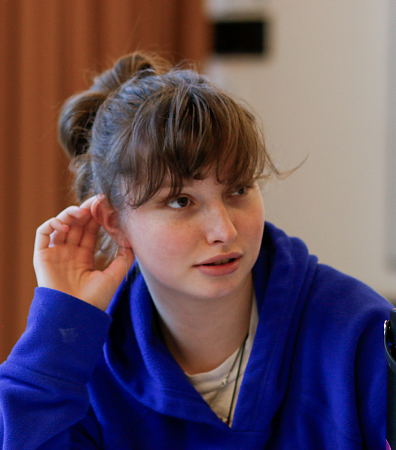
Hero Envelope Title
Hero Envelope Text
AEC staff with students from the Disability Advocacy Committee in front of Knight Library
The Accessible Education Center (AEC) is dedicated to facilitating and supporting accessible education through full inclusion of students with disabilities into the UO environment. The AEC recognizes disability as an aspect of diversity integral to the university and to society.
As the office designated to determine disability eligibility, AEC provides a range of support and services to eligible students and consults with faculty and staff regarding student disability access issues. Support and services for eligible students include academic, housing, and external placement accommodations, disability-related advising, scholarship opportunities, group and one-on-one skill building, and community-building opportunities.
students registered with AEC
of incoming UO undergraduates reported having a disability or being neurodivergent
student appointments with
Growing Demand

UO students' need for AEC support and services, including instructional and testing accommodations, continues to grow rapidly year over year. The 3,559 students registered with AEC in 2023-24 represents an 8.67 percent increase from the prior year, and an almost 50 percent increase in last five years.
Despite this rapid increase in demand, the AEC has continuously improved processes and added four new access advisor staff positions, reducing the wait time for an initial appointment from six weeks to less than a week. This has drastically improved the student experience and ensured that the UO meets our ADA requirements of engaging in an interactive process in a timely manner.
Campus Engagement
This year, AEC staff hosted and led:
- 50+ presentations and trainings for the campus community.
- 1,000+ consultations with faculty and staff regarding student accommodations and access issues, and how to make their courses more accessible.
- 15 workshops and events aimed at students, including a mental health field day, a weekly body doubling/neurodivergent-friendly study space, a quarterly breakfast for graduate students with disabilities, and a monthly community coffee hour.

UO student attends an AEC "Time Management" workshop.
Accessibility Ally
During spring term, 36 UO faculty and staff members from across campus participated in AEC’s Accessibility Ally Program, a five-hour intensive training over two days, to increase awareness related to disability and develop skills and knowledge to act as an ally for accessibility and inclusion of students with disabilities.
Other Highlights
- In February 2024, AEC brought award-winning artist Lachi to campus for a performance at Beall Hall with the help of several campus partners. Born legally blind, Lachi amplifies identity pride and disability culture through music, storytelling, and fashion.
- AEC launched a new Disability Advocacy Committee, a group of eight students who educate the campus community on issues faced by disabled students, support AEC events and outreach activities, and offer fresh perspectives to inform AEC’s work. During winter and spring terms, students on the committee participated in around 10 events and developed initiatives to promote increased accessibility on campus.
- The center’s disability project fund awarded over $39,000 in funding to 59 students, the majority of which helped support students going through psychoeducational assessment.
- Dr. Lindsay Hinkle, Chemistry instructor for the Clark Honors College, was the winner of AEC’s 2024 Faculty Excellence in Universal Design Award. This award recognizes Dr. Hinkle’s outstanding commitment to creating inclusive and effective learning environments for all students.
- The AEC’s academic engagement counselors led weekly psychoeducational groups for students, focused on strategies for students with ADHD and social connections for students on the Autism spectrum.
